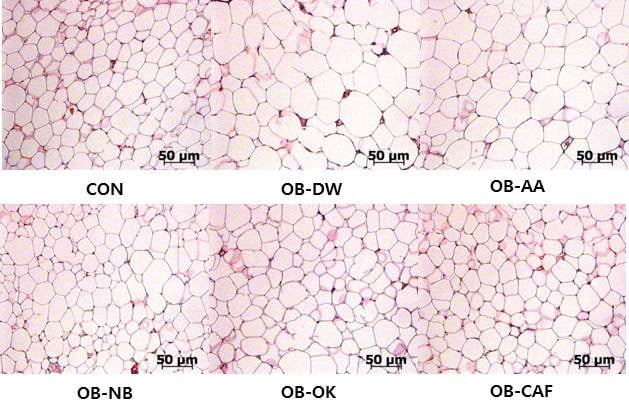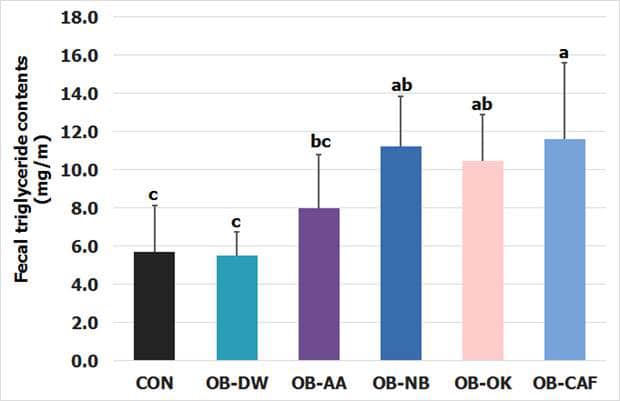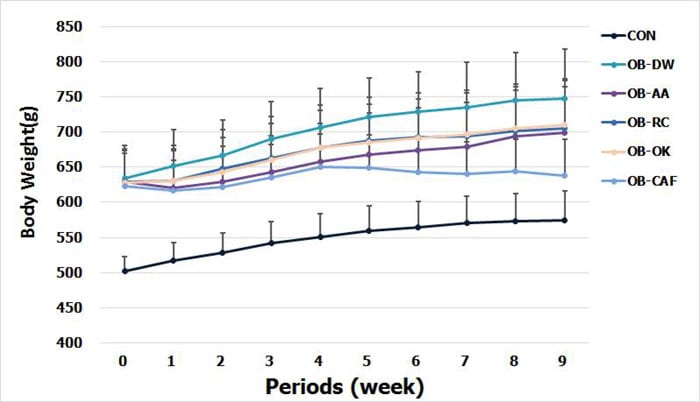Raspberry vinegar and lacquer tree vinegar have been found to be effective in preventing obesity, the hardening of the arteries and the developing of a fatty liver.
The Rural Development Administration (RDA) recently conducted experiments on the effects of fermented vinegars using obesity-induced mice. Mice fed with such vinegars lost 6 to 7 percent of their weight compared to the control mice that were not fed vinegar. In a blood analysis, mice fed with vinegar had lost 12 to 31 percent of their cholesterol. These mice also saw their amount of HDL cholesterol, known to be good for health, increase by 20 percent to 49 percent, but the amount of LDL cholesterol, which has negative effects on health, decline by 53 percent to 57 percent.

Mice fed with raspberry vinegar lose 6 to 7 percent of their weight compared to the control mice.
There were similar results in an experiment on the effects of vinegars on the hardening of arteries. Mice fed with vinegar saw their atherosclerosis index move from 0.96 to 0.99 while the control mice remained at 2.35.
The level of lipids in mice fed with vinegar fell 46 percent to 52 percent and the level of fat in their feces increased 75 percent to 89 percent. This shows that consuming vinegar can help prevent some aspects of obesity and cardiovascular disease.
The raspberry vinegar used in the experiment was developed in 2014 and seeds that are efficient in producing acetic acid were used to ferment the vinegar. Gallic acid, tannin, catechin and quercetin, major ingredients in raspberries, are preserved even after fermentation. As a result, the vinegar is effective in preventing obesity and the hardening of arteries. Urushiol, a substance in lacquer tree vinegar that can cause allergies, is removed from the final product. Lacquer tree vinegar is known to be effective in boosting blood circulation and in treating gastrointestinal and heart problems. It is also an antioxidant and has antimutagenic and anti-inflammatory effects, as well.

The fat level in mouse feces increases by 75 to 89 percent.

Mice fed with raspberry vinegar see an improvement in body weight.
In order to produce high quality fermented vinegars, the RDA selected superior seeds that were effective in producing acetic acid and found an optimal percentage of alcohol content for the best fermentation results, finding favorable conditions for fermented vinegars to have acetic acid. The selected seed is Acetobacter pasteurianus (KACC92047P) and the optimal percentage of alcohol in the fermented vinegar is 5 to 6 percent.
The RDA intends to analyze the effects of such fermented vinegars on preventing osteoporosis and other major metabolism problems in the future. Finally, the RDA obtained a patent (No. 10-2015-0106559) on the process of producing such raspberry vinegar.
By Limb Jae-un
Korea.net Staff Writer
Photos courtesy of the RDA
jun2@korea.kr























